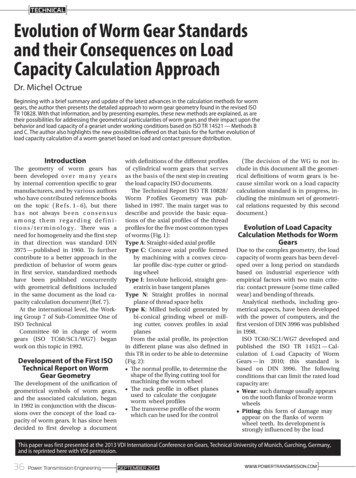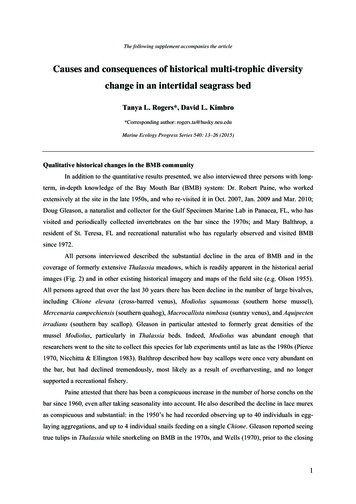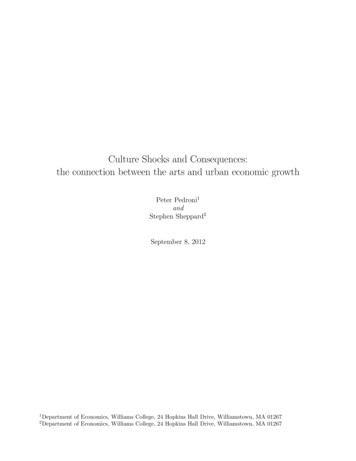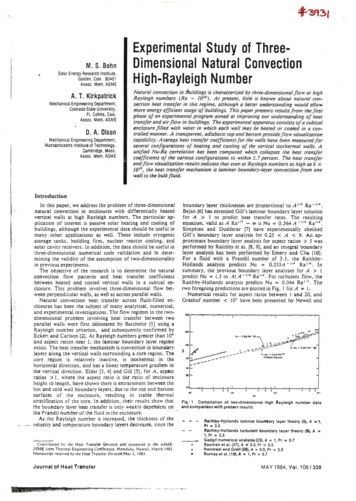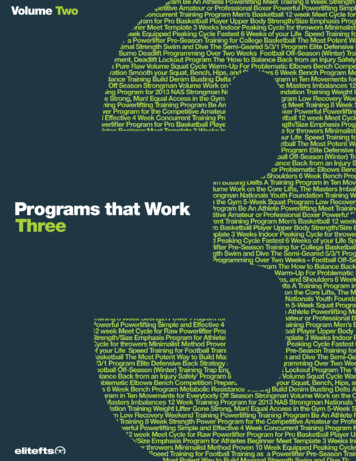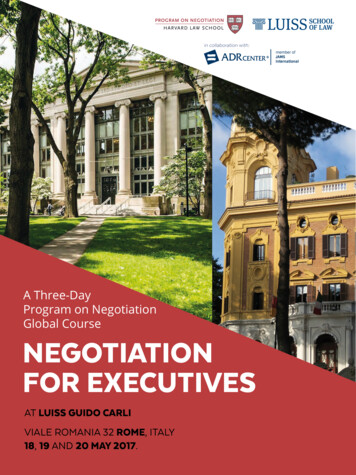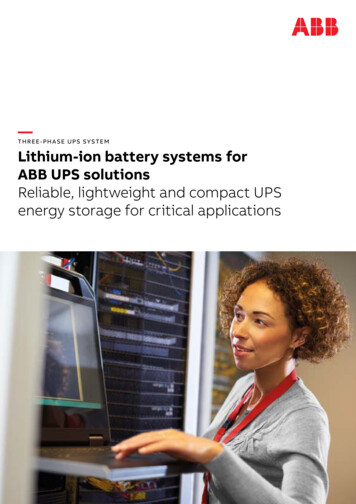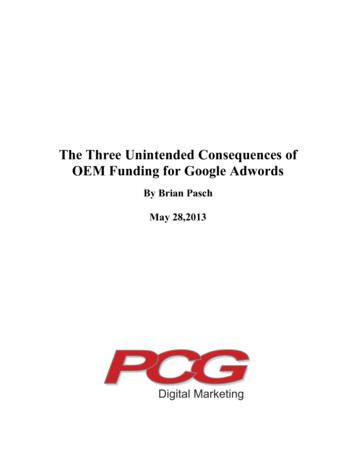
Transcription
The Three Unintended Consequences ofOEM Funding for Google AdwordsBy Brian PaschMay 28,2013
It wasn’t long ago that automotive manufacturers did not allow digital advertisingcampaigns (i.e. Google Adwords) to qualify for franchise dealer co-op funds. Fast forwardto 2013, OEM funding for digital advertising is commonplace.GM was one of the first manufacturers to design a digital advertising package (DAP) withCobalt that qualified for co-op funds. More recently, Chrysler selected three companies toprovide digital advertising campaigns for their dealer network: Dealer.com, HaystakDigital Marketing, and Search Optics.Some manufacturers have a more entrepreneurial model for co-op funds for advertising,which allows for dealers to select their own vendor partners to implement digitaladvertising strategies. In these cases, as long as the campaigns comply with OEMadvertising guidelines, funding is approved.Improving The Success Of The OEM NetworkWhy do manufacturers have co-op programs? These programs reward dealers forcompleting a recommended action. The purpose of OEM recommendations may notalways be clear but in the case of digital advertising, the OEM is clearly trying to shift theinvestments dealers make to promote their dealership. Co-op programs also provideconsistency of message across Tier 1/2/3 and protect the brand image through complianceof co-op guidelines.Manufacturers know that dealers who do not leverage the power of Google Adwords aremissing a vitally important piece of their marketing strategy. Dealers must have a strongpresence online. Mobile advertising is becoming a critical battleground and Adwords,more than SEO, is a proven mobile marketing weapon. To get more dealers to use digitaladvertising, the carrot is co-op funding.You could make the case that OEM co-op funds for franchise dealers are slanted to liftunder-performing stores rather than increase the success of their top performers. Topperforming dealers already have experience with Adwords. They know the ROI thatproper Adwords campaigns can deliver. Top performing dealers would love to have theirpeers stay in the dark and spend their dollars on less efficient advertising strategies. TheOEM rightfully has to think about the success of the entire network and create a moreequal playing field.With that said, if a dealership is not using Adwords to its fullest potential today, is it a lackof OEM funding or a lack of education? Is it wise to encourage “sign and drive” Adwordsprograms without a parallel investment in dealer education? My experience, conductingAdwords workshops, has proven that when dealers understand the power of Adwords, theywill embrace the investment whether it is co-op funded or not. So when will training ondigital marketing be also available for co-op funds? Regional digital advertisingworkshops or approved curriculum at larger conferences, are two prime candidates foreducational co-op funds. 2013 PCG Digital Marketing – Rev A1Page2
Is The Pool Overcrowded?The first unintended consequence of the recent push to encourage dealers to invest indigital advertising is higher cost per click (CPC) charges. The dealers who were earlyadopters of paid search are now seeing their costs rise, due to increased competition fromtheir local franchise peers.KeywordinAdwordsMar- ‐11Mar- ‐12UsedVolkswagenForSaleVolkswagenForSale 1.99 2.56 1.36 2.13Mar- ‐13 3.31 3.21Increase66.3%136.0%Volkswagen is a perfect example of the dramatic increase in CPC charges over the pasttwo years, for the same position on Google SERP’s. Chrysler dealers have also told methat CPC charges have been on the rise since 2012 when OEM funding was approved forAdwords campaigns.CPC charges are also rising because of increased budgets for digital advertising from Tier1 and Tier 2 advertising agencies. These are rarely coordinated with Tier 3 and oftenoutbid their own dealers, in their local market, for their OWN dealership name. Doesanyone see a conflict here?In an ideal world, Tier 1 could focus on OEM brand searches and keywords that indicatethat the consumer is higher in the sales funnel. Tier 2 could focus on competitive brandsearches, conquest campaigns, regional incentives, and sales programs for lead generation.Tier 3 would protect the dealership name, local dealer conquest, vehicle searches for citiesin their market, and compete for localized vehicles searches on mobile devices by GPSlocation.Using The Same PlaybookThere are some other unspoken problems involved in rising per-click costs, which arerelated to OEM decisions to only approve a handful of companies to service a diversedealer network. In order to scale and support hundreds or thousands of dealers, vendorshave to create ad templates and keyword groups, which they can apply to multiple dealers.When hundreds of dealers are using a subset of the same keywords and strategies, costswill rise.The second unintended consequence is that as more dealers use co-op funds for Adwordsthey are using the same company as their local competitors. That means they are using theexact same technology, strategy, and keywords to compete with each other. Ironically, inthe past dealers would never hire the same traditional advertising agency used by their toplocal competitors, but they are for their important digital marketing strategies! 2013 PCG Digital Marketing – Rev A1Page3
To be fair to OEM approved Adwords vendors, not all ad campaigns are exact templates.Dealers will have campaigns based on their own name and the cities’ names in theirPrimary Market Area (PMA). However, the truth is that there will always be a competitiveoverlap of generic keywords like “Used Chevy Silverado,” “Used Toyota Tundra,” or“Used Car Dealer.”In the past, progressive dealers had less competition from other dealers for these popularkeywords. Today, OEM co-op funds have frustrated “first to market” dealers who usedAdwords before co-op funds were available. Is there a solution to the problem of risingCPC charges since even a smaller vendor will utilize keyword research to identify popularkeywords?Are There Solutions To Fight This Trend?Yes, there are solutions. Campaign management must be more synchronized to landingpage design, Google Analytics insights, Vehicle Detail Page views, and a focus onimproving quality scores. These disciplines will lower CPC charges and increaseconversion. Conversion has always been important but now, more than ever, we need toget it right since costs are rising.I have inspected a number of Adwords campaigns that are not producing the rightconsumer engagement as seen from Google Analytics data. These campaigns would neverhave been flagged as a “poor performing” campaign based on CPC costs. If you solely useAdwords reporting, you are driving your Adwords marketing with a huge blind spot.Our industry has to evolve from looking at Cost Per Click (CPC) and Cost Per Lead (CPL)as the only measures of success for Adwords. Why? Because only half of the vehicles thatcar dealers sell each month can be traced to a recent lead submission or phone call. Theother 50% of car sales are from consumers I like to call stealth shoppers and these stealthshoppers are influenced by Adwords!Our industry must develop additional metrics to measure how well our digital campaignsare driving behaviors that relate to selling more cars because by standard Adwordsmeasures they never converted.How Many Vendors Should An OEM Select?I’ve been asked a number of times about how co-op approved vendors are chosen or why amanufacturer would select only one approved vendor for all dealers inside an OEMnetwork. Can one vendor create advertising campaigns fairly when all dealers in a localmarket are competitive and want to win market share?The answer is tricky. If all dealers underspend, according to Google’s budgetrecommendations, then one vendor may be able to judicially “round robin” the ads for 2013 PCG Digital Marketing – Rev A1Page4
dealers in the local market. The vendor’s solution can give dealers 24x7 visibility, spreadout by their budget, but they will not dominate paid search results. Also, one vendor canmake sure that digital advertising campaigns are run along primary areas of responsibility,aka their dealer’s DMA.For example, if dealers in a competitive metropolitan market could spend 6,000 - 8,000a month according to Google, but select a 3,000 a month OEM package, then all dealerscan share the Google ad space. This still does not resolve the competitive bidding issue,but it explains how one vendor could make a “fair” digital advertising playing field.However, most dealers I know do not want to be fair! They want to dominate their localmarkets and conquest consumers from adjoining marketing zones. The issue of a onevendor model starts to break down when dealers all want to fully maximize their budget. Itfurther breaks down when all dealers are using Adwords advocates trained in the sameway, to create “unique” supplemental campaigns in the same market. Is it really feasible?Are You Double Serving?So, entrepreneurial dealers hire a second advertising company to drive Adwords traffic totheir website to supplement the OEM program or to conquest new markets. These dealerswant to be different, try new strategies, and find holes that their peers did not recognize. Iapplaud their initiative.This brings me to the third unintended consequence; Double Serving. Google does notlike two different Adwords SEM accounts sending traffic to the same website.To protect the value and diversity of the ads people see on Google, we generallydiscourage advertisers from running ads for the same or similar businesses acrossmultiple accounts triggered by the same or similar keywords. This policy, known as"double serving," prevents multiple ads from the same or commonly-owned companyfrom appearing on the same search results page.So, you can see how enthusiasm and entrepreneurial spirit actually could be hurtingdealers—a costly unintended consequence. These dealers are in a bind. Jimmy Vee andTravis Miller founders of RichDealers.com have a popular tag line that they use atworkshops, “Same is Lame!” Would you agree?Double serving may be impacting dealers who have body shops, quick lube operations, andaccessories pages on their main website. It can also apply to dealers who want to pushadditional traffic for specific new car models or used cars. Having a second Adwords SEMcampaign driving traffic to the dealer’s main website could be seen as Double Serving, ifboth companies are using the same keywords.Double serving does not apply to supplemental campaigns that use non-conflictingAdwords strategies. For example, dealers use video pre-roll services to tap into costeffective online video marketing because their primary Adwords vendor does not offer 2013 PCG Digital Marketing – Rev A1Page5
integrated video marketing. Video pre-roll and video retargeting are new strategies thatdealers should be using to connect with shoppers during the Zero Moment of Truth.In an ideal world, manufacturers would give dealers a co-op budget for digital marketingand not restrict vendor choices. But that is not the reality we live in today, so let’sunderstand why manufacturers limited choices.Why Limit Vendors At All?So, why do manufacturers want to limit which vendors they approve for co-op funding?The answer is: Big Data. The vast amount of data generated by digital advertising isextremely valuable to manufacturers. For example, data from consumer clicks can helpforecast vehicle demand and influence production schedules.By limiting vendors, manufacturers can feed the results of digital advertising campaignsinto their OEM data warehouse for marketing analysis. Since there is no “standard” forfeeding digital advertising data into a central data warehouse, limiting the data partners is apractical reality.I completely understand why the OEM’s don’t want to miss out on the Big Dataopportunities for their dealer network. However, the bigger opportunity is to create auniversal adapter that feeds data into OEM marketing models from Adwords vendors.This would give dealers a choice on which company they want to partner with to createunique digital marketing messages.What Is The Ideal Scene?Manufacturers need to create digital marketing co-op strategies that give dealers choices.Those choices should include companies that can provide boutique, customized marketingcampaigns and not just mass marketing giants. Co-op programs should not force theirdealer network into the same “box” or use one specific solution. A more accommodativepolicy would give dealers the freedom of expression and an ability to showcase theircreativity for their local market.Some may argue that creative freedom exists today, as offered by the largest agencies thatprovide Adwords services to thousands of dealers. My experience is actually contrary tothat belief. I have found too many “set it and forget it” campaigns running for dealers thatdo not include any regular discussion on strategy, creative testing, and first to market ideas.There is also the practical reality that limited choices will create situations wherepersonalities and customer service polices are not a good fit for some dealers.Manufacturers should also require their OEM approved website platform providers to“play nice” with third party advertising partners. That should include the ability for allagencies to leverage Adwords conversion tracking for form leads and phone calls.Ironically, this is a topic that gets very little discussion online. Existing anti-agency 2013 PCG Digital Marketing – Rev A1Page6
policies, from OEM approved website providers, border on monopolistic practices thatgive dealer’s little choice on marketing partners.Digital marketing strategies continue to evolve and advanced dealers are well underwaywith testing video pre-roll, video retargeting, and digital radio advertising. Our industryneeds more open standards for reporting so that dealers have more choice. More choicewill allow dealers to use their entrepreneurial skills to deliver a strong marketing messagethat is not the same as their peers, but still OEM compliant.A Fourth Consequence?Is there a fourth unintended consequence? I’ll dive deeper into that consequence in mynext whitepaper but let me say that Automotive SEO strategies are looking more attractivethen ever now that we see CPC charges rising over 100% for some branded keywords.It’s time for dealers to revisit SEO strategies to increase high-quality, organic traffic that issustainable. Investments in original website content, once only considered an SEOstrategy, are actually helping to lower CPC charges, when collaboration occurs betweenSEO and SEM vendors.A Call For ChangeIt is my desire for the digital marketing teams, working with automotive manufacturers, totake the time to learn about the unintended consequences that may be impacting theirdealer network. I encourage OEM’s to have a greater dialogue with their dealer networkon digital marketing ROI. The conversion would surely help to avoid costly unintendedconsequences in the future.OEM co-cop models also need to be more nimble and empowering. It took years formanufactures to co-op basic Adwords SEM. Industry sales would be hampered if it takesanother year to approve co-op funding for new digital strategies that include video pre-rolland online video marketing. When will the manufacturers, seeing a rising trend in CPCcharges, recognize the importance of co-cop funding high quality website contentdevelopment and SEO?I hope that this whitepaper starts a lively discussion within our industry to maximize theimpact of co-op funding for digital marketing initiatives. 2013 PCG Digital Marketing – Rev A1Page7
AboutBrianPaschBrian Pasch, founder of PCG Digital Marketing,has built his business insights and strategy on afoundation consisting of over 20 years ofInformation Technology and Marketingleadership. His career history includes work inthe public sector, Senior Telecom Analyst onWall Street and has an incredible talent forbuilding successful private enterprises.Fresh out of Rutgers University, Brian publishedhis first book and software package withPrentice Hall in 1984. Since that time he hasbeen recognized as a builder of world-class datawarehousing models, a creator of award winningsearch marketing strategies and the highest ratedInternet Trainer in the automotive industry.Recognizing a powerful shift in corporateadvertising spending, Pasch founded PCGDigital Marketing in 2005 to assist growingcompanies with their digital marketing strategy. Brian’s ability to speak authoritatively tobusiness leaders and their technical teams on business architecture, marketing, and saleshelped to catapult their growth and credibility.In August 2011, Inc. Magazine named PCG Digital Marketing the 192nd Fastest GrowingPrivate Company in the United States. PCG was also ranked in the Top 10 FastestGrowing Private Companies in New Jersey where PCG is based. PCG serves manyindustries, but their largest by far is the automotive retail industry where they servehundreds of car dealerships across the US and Canada.Brian Pasch is an avid writer and blogger and his commentary on Search EngineOptimization and Digital Marketing can be easily found on the Internet. In 2012 hefounded PCG Consulting to provide vendor neutral advise to business leaders looking tocreate a comprehensive marketing strategy that includes the latest opportunities intraditional, digital, and social media.Brian is an active speaker at automotive industry conferences, 20 Groups, and digitalmarketing workshops. His popular training programs makes him an in demand speakerwith elite flying status. Brian is an advocate of balance living and takes time to invest inhis health and spiritual well being. That lifestyle includes making time for his family andfriends in New Jersey where he lives by the Jersey Shore. 2013 PCG Digital Marketing – Rev A1Page8
AboutPCGDigitalMarketingFounded in 2005, PCG Digital Marketing provides customized digital marketing strategiesfor car dealers that includes: Search Engine Optimization (SEO).Digital Advertising (SEM, Video Pre-Roll, Retargeting, Digital Radio).Internet Reputation Management (IRM).Social Media Engagement & Marketing via Google WildFire Platform.Facebook Advertising.Content Marketing Packages.PCG Digital Marketing has been recognized for outstanding service by the DrivingSalesDealer Satisfaction Awards, which are compiled by actual dealership voting.To speak with a consultant regarding PCG Digital Marketing services, call 732.450.8200. 2013 PCG Digital Marketing – Rev A1Page9
provide digital advertising campaigns for their dealer network: Dealer.com, Haystak Digital Marketing, and Search Optics. Some manufacturers


